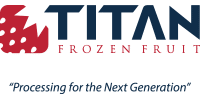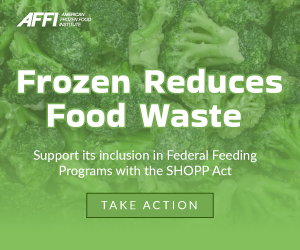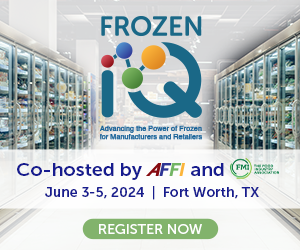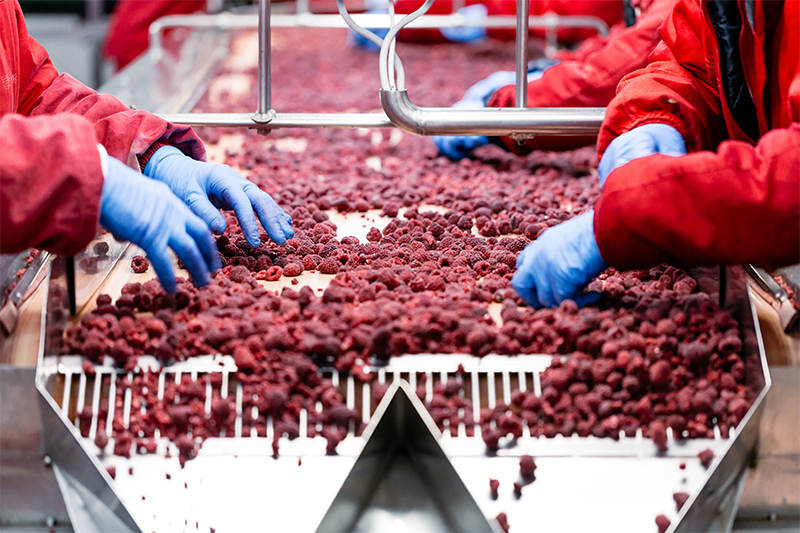Sustainability
Home » Sustainability in Frozen Food
AFFI drives technical resources, training programs and professional networking opportunities that advance a positive sustainability profile for the frozen food industry.
AFFI’s sustainability activities and outreach is generously made possible by Renew Energy Partners.
A Strategic Focus on Sustainability

Decarbonization
Reduce greenhouse gas (GHG) emissions in frozen food production.

Food Waste
Promote the role of frozen food in preventing and reducing food waste.

Food Packaging
Reduce the environmental impact of frozen food packaging.
AFFI's Industry Decarbonization Share Group: Leading the Way for Frozen Food
AFFI members can network with industry professionals in this share group, created to help companies navigate their transition to decarbonization through energy and GHG reductions. Under the umbrella of decarbonization as a pre-competitive goal, members openly share best practices and learnings related to measurement, setting goals, taking action and monitoring progress.
By participating in the Industry Decarbonization Share Group, companies gain access to:
- Relevant technical resources and tools
- Third party consultants
- Opportunities for peer-to-peer discussion
Share group members hold two key commitments:
- Have a goal, or commit to setting a goal, for GHG reduction within the next 12 months.
- Commit to an annual short survey on company progress toward setting and achieving GHG reduction goals.
Educational Webinars
AFFI Offered a Series of Educational Webinars in 2023 on topics such as:
Decarbonizing 101 – A two-part series on practical guidance for tracking energy and GHG data; steps to reduce emissions
How to Set GHG Emission Reduction Goals
Corporate Customer Commitments to GHG Reductions & Implications for Frozen Food
Meet the Industry-Leading Companies in the Decarbonization Share Group


































